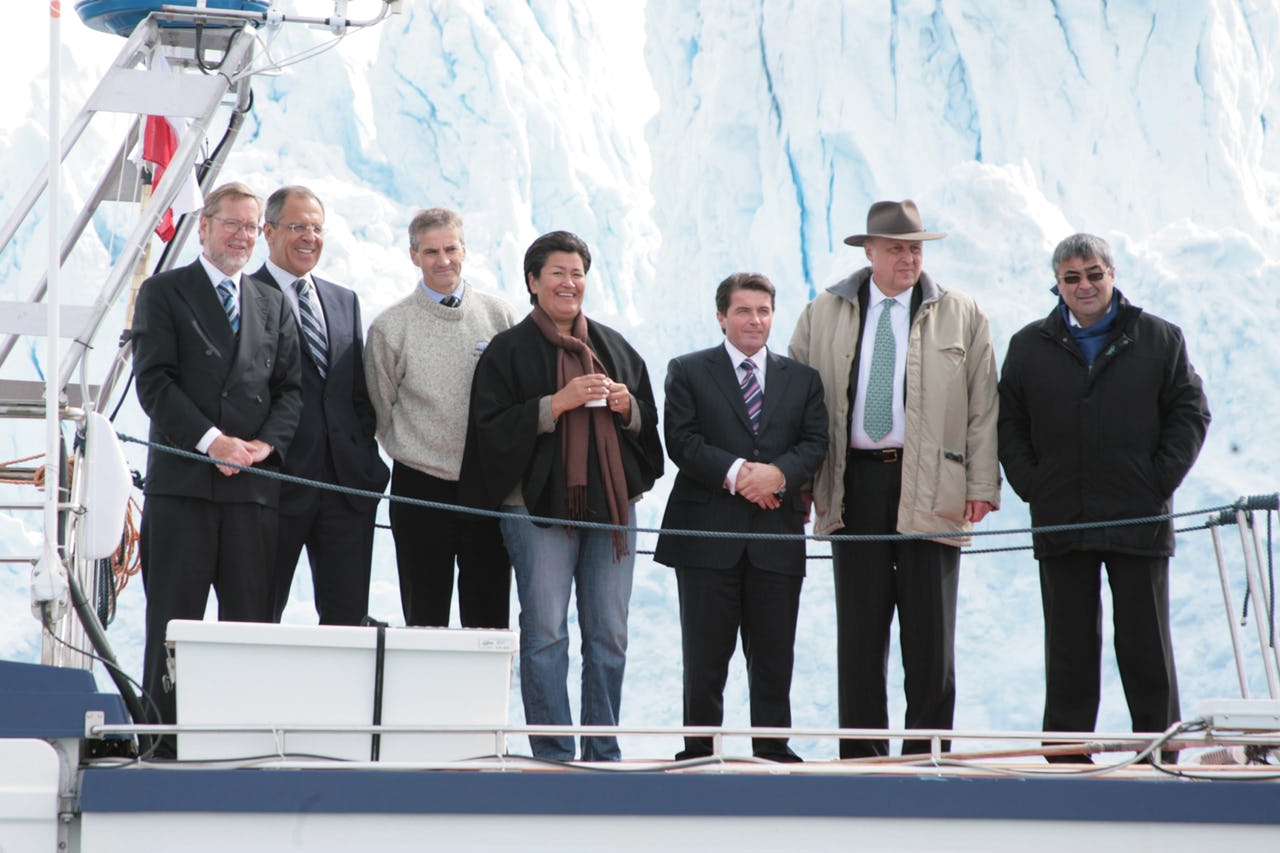Desecuritization as Displacement of Controversy

The Ilulissat Declaration of 2008 was a pre-emptive desecuritization act in reaction to the growing concern for military conflict in the wake of the 2007 Russian flag planting. Photo: Bent Petersen
In a rapidly changing Arctic, there is a need to engage in a comprehensive investigation into what Arctic security means in the 21st century. Together with the Danish journal POLITIK, The Arctic Institute has, thus, published a Special Issue, which aims to widen the debate on Arctic security relations through a more comprehensive dialogue inclusive of the many different types of security, their interactions, and their challenges.
The Arctic Institute Arctic Security Constellation Series 2017
- Arctic International Relations in a Widened Security Perspective
- Desecuritization as Displacement of Controversy
- Soft Securitization: Unconventional Security Issues and the Arctic Council
- Regional Order in the Arctic: Negotiated Exceptionalism
- Arctic Indigenous Societal Security at COP21
- Post-colonial governance through securitization?
- What Kind of Nation State will Greenland be?
- The Arctic Security Constellation
Desecuritization as Displacement of Controversy: geopolitics, law and sovereign rights in the Arctic
By signing the Ilulissat Declaration of May 2008, the five littoral states of the Arctic Ocean pre-emptively desecuritized potential geopolitical controversies in the Arctic Ocean by confirming that international law and geo-science are the defining factors underlying the future delimitation. This happened in response to a rising securitization discourse fueled by commentators and the media in the wake of the 2007 Russian flag planting on the geographical North Pole seabed, which also triggered harder interstate rhetoric and dramatic headlines. This case, however, challenges some established conventions within securitization theory. It was state elites that initiated desecuritization and they did so by shifting issues in danger of being securitized from security to other techniques of government. Contrary to the democratic ethos of the theory, these shifts do not necessarily represent more democratic procedures. Instead, each of these techniques are populated by their own experts and technocrats operating according to logics of right (law) and accuracy (science). While shifting techniques of government might diminish the danger of securitized relations between states, the shift generates a displacement of controversy. Within international law we have seen controversy over its ontological foundations and within science we have seen controversy over standards of science. Each of these are amplified and take a particularly political significance when an issue is securitized via relocation to another technique. While the Ilulissat Declaration has been successful in minimizing the horizontal conflict potential between states it has simultaneously given way for vertical disputes between the signatory states on the one hand and the Indigenous peoples of the Arctic on the other.
Co-author Jeppe Strandsbjerg is Associate Professor at the Department of Business and Politics, Copenhagen Business School.